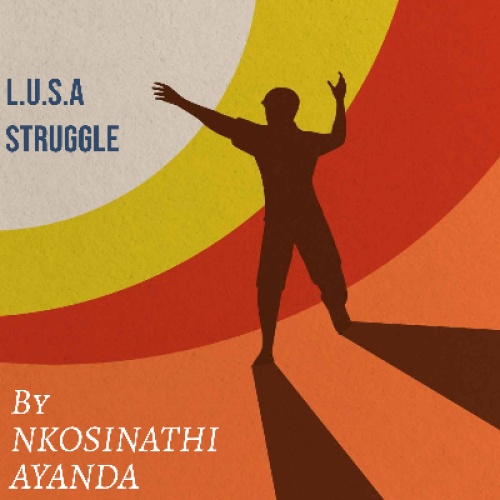Once there was a 22-year-old boy named Lusanda who had known hardship for most of his life. After his father left when he was just a child, Lusanda was raised by his mother, who struggled tirelessly working part-time jobs to keep a roof over his head and food on the table. Despite her efforts, life was often a hollow, lonely journey for Lusanda, filled with the ache of absence and unfulfilled dreams.
When Lusanda was a teenager, circumstances grew darker. His mother, exhausted from her relentless toil, could no longer care for him alone. An uncle - who had once been distant and cold - took him in. But the place Lusanda found himself in was far from a sanctuary. His uncle, burdened by his own frustrations and failures, turned out to be abusive. Harsh words, angry fists, and a sense of constant fear became Lusanda's new reality.
His only solace was the brief moments he spent with his girlfriend, Gugu, a girl whose kindness and gentle smile were a balm to his battered spirit. But Gugu's presence was fleeting; her own family life was fragile, and she couldn't always be there. Yet, even in those rare moments, Lusanda felt a flicker of hope.
One cold evening, Lusanda sat alone in his dimly lit room, the echoes of his uncle's shouting still ringing in his ears. His body bore the bruises from another fight, both physical and emotional. He looked out the window at the darkened streets, feeling the weight of his loneliness crushing him. The memories of his childhood - his mother's tired eyes, his father's absence - flooded his mind, and tears welled up, unbidden.
In that quiet despair, Lusanda wondered if things would ever change, if he would ever find a way out of this endless cycle of pain. The world outside seemed distant and indifferent, and he felt like a shadow of himself, lost in a place where love and safety were just distant dreams.
And so, Lusanda's story remains a quiet testament to the silent struggles of many - children and young adults caught in cycles of hardship and neglect, yearning for a moment of peace in a world that often feels cold and unforgiving.
When Lusanda was a teenager, circumstances grew darker. His mother, exhausted from her relentless toil, could no longer care for him alone. An uncle - who had once been distant and cold - took him in. But the place Lusanda found himself in was far from a sanctuary. His uncle, burdened by his own frustrations and failures, turned out to be abusive. Harsh words, angry fists, and a sense of constant fear became Lusanda's new reality.
His only solace was the brief moments he spent with his girlfriend, Gugu, a girl whose kindness and gentle smile were a balm to his battered spirit. But Gugu's presence was fleeting; her own family life was fragile, and she couldn't always be there. Yet, even in those rare moments, Lusanda felt a flicker of hope.
One cold evening, Lusanda sat alone in his dimly lit room, the echoes of his uncle's shouting still ringing in his ears. His body bore the bruises from another fight, both physical and emotional. He looked out the window at the darkened streets, feeling the weight of his loneliness crushing him. The memories of his childhood - his mother's tired eyes, his father's absence - flooded his mind, and tears welled up, unbidden.
In that quiet despair, Lusanda wondered if things would ever change, if he would ever find a way out of this endless cycle of pain. The world outside seemed distant and indifferent, and he felt like a shadow of himself, lost in a place where love and safety were just distant dreams.
And so, Lusanda's story remains a quiet testament to the silent struggles of many - children and young adults caught in cycles of hardship and neglect, yearning for a moment of peace in a world that often feels cold and unforgiving.




